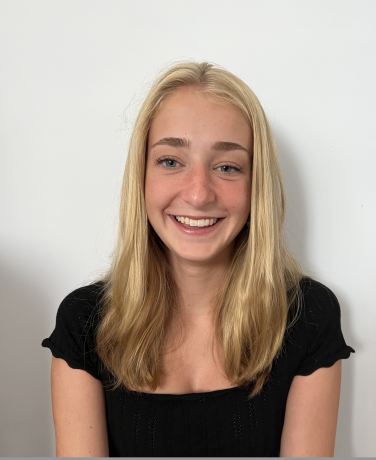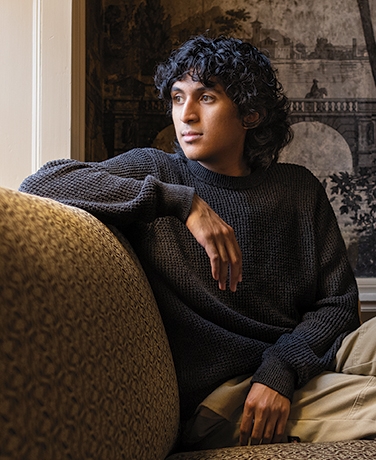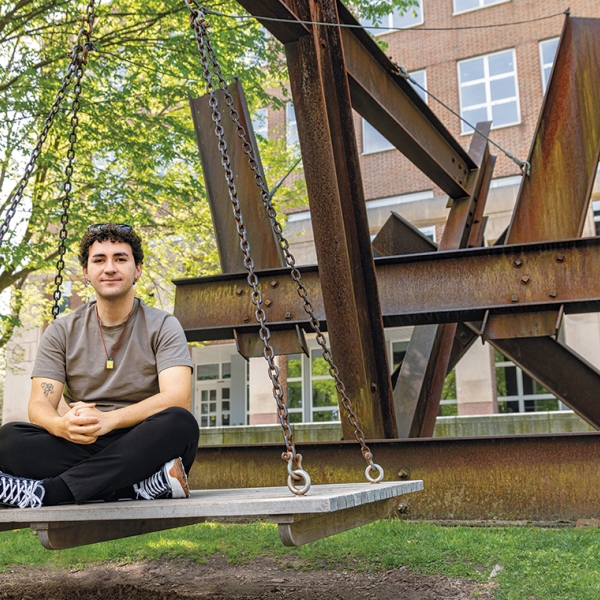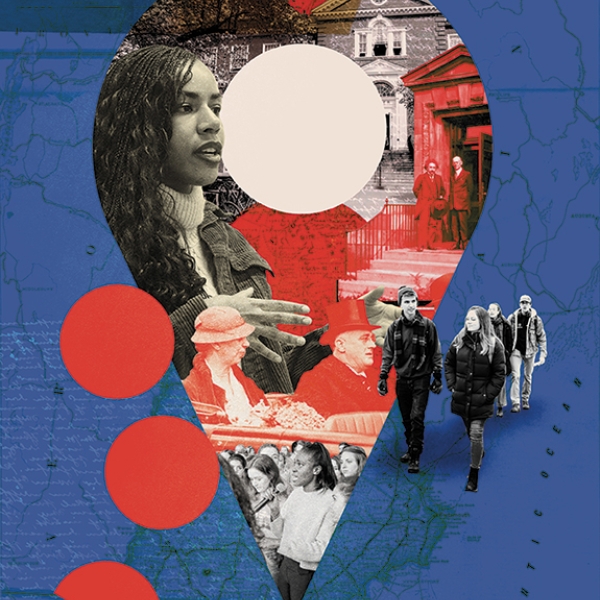America's Most Promising Young Poet of 2023 is a Dartmouth student. The Academy of American Poets, whose University and College Poetry Prizes recognize students aged 23 or younger, bestowed the honor upon Edgar Morales '24 for his poem Swim. He joins a cohort of renowned poets, including Sylvia Plath and Ocean Vuong, who first won recognition through the program.
"It serves as a model for my poetic work," Edgar says of Swim, which he wrote about his mother in response to a prompt in Professor Matthew Olzmann's intermediate poetry class: Write about where you came from. "Intuitively, I thought about my mother's womb, this space of security and love and fear of the world outside a mother's protection—and the poem was born."
Edgar wrote his first collection of poems after reading The Poet X by Elizabeth Acevedo in Professor Marcela Di Blasi's Latinx Intergenerational Literature class. "I'd never viewed my Latino identity as embodied by poetics because of how I'd been conditioned to believe poetry operates," he says. "The Poet X was the first place I saw myself in poetry. Professor Di Blasi helped me understand how Latinx literature operates within academia."
Edgar's interest in Latinx literature extends to his role as an undergraduate advisor for La Casa, a residential community that provides academic, cultural, and social immersion for students interested in studying Spanish cultures and languages. Together with live-in advisor María Clara de Greiff, he devised programming for residents around migrant justice that "gets at the heart of the intersections of storytelling, culture, and the significance of poetics across borders."
For Edgar, who entered Dartmouth intending to study engineering, poetry has been a means of probing recollections of home, family, and origin. "Leaving Los Angeles and moving to Hanover was a big shift. I experienced feelings of nostalgia and guilt," he says. "In poetry, I attempt to relive memories—some of them painful, others joyous; some real, others imagined."
Edgar's senior thesis, supported by English and creative writing professor and celebrated poet Vievee Francis, centers around the term "motherland." The project explores the redress of memories lost through immigration and examines themes of innocence, identity, and personhood. In support of Edgar's thesis research, the English and creative writing department funded his travel to Mexico to meet some of his family for the first time. He is also submitting applications for MFA programs. "I believe that poetry is for anybody. I'm a poet, and I can say that with confidence now. As long as I'm writing and reading, that's enough for me."
Photograph by Don Hamerman, pictured in the Poetry Room in Sanborn House






